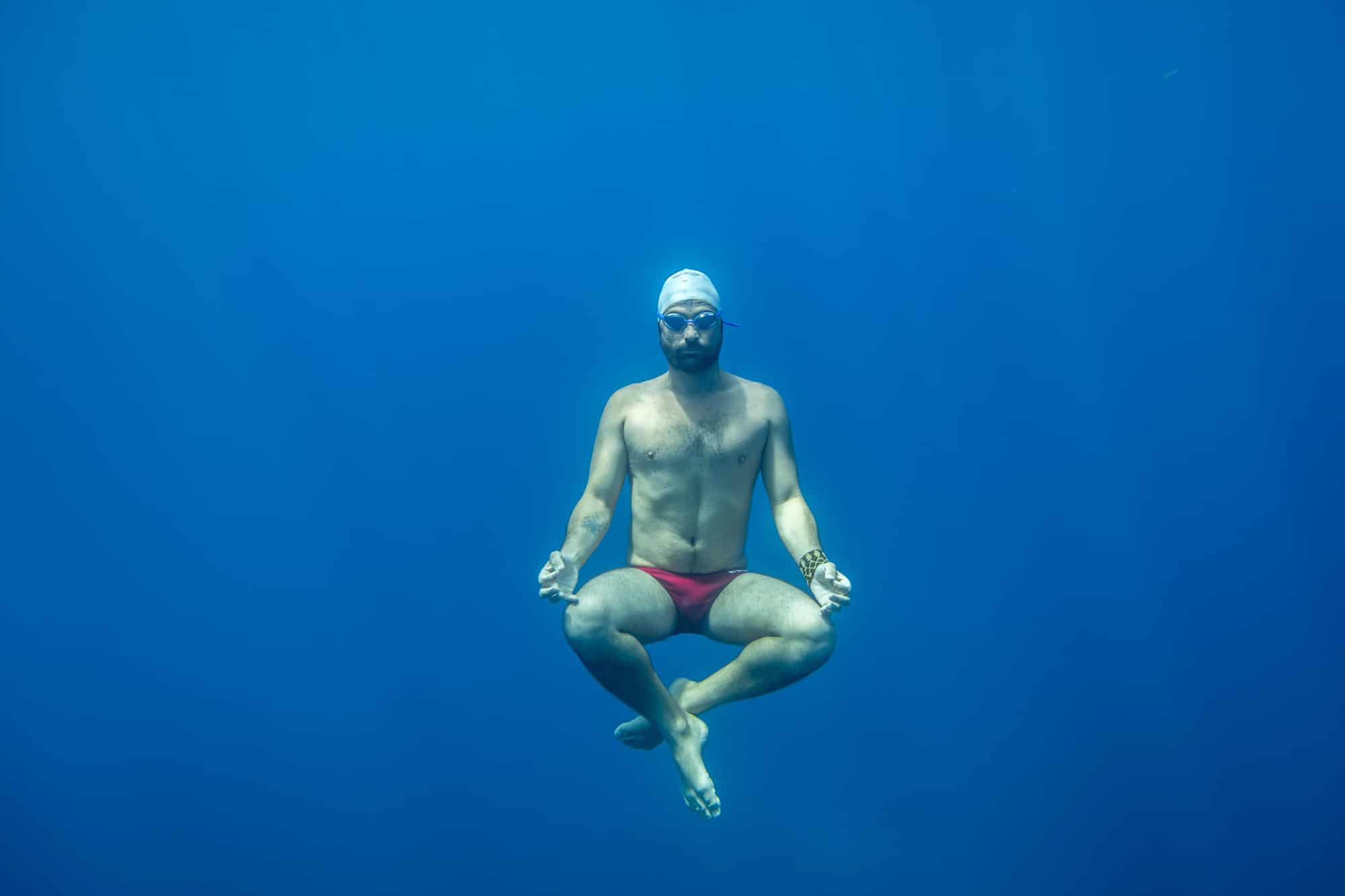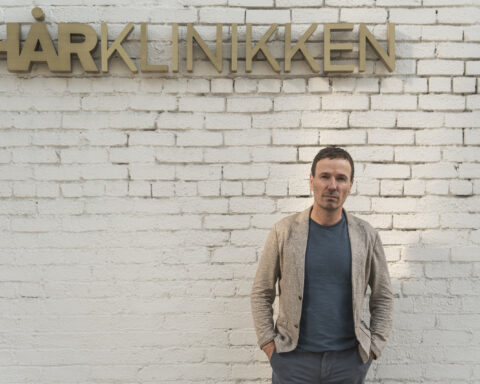I feel like this challenge chose me, rather than the other way round. In 2018, I decided to swim around my home country, Malta, a small Mediterranean island that has a circumference of 70 kilometers. I swam that in 22 hours, and three quarters of the way through, I was not in a happy place at all. I thought I would never do something like that again. It was just hard-headedness that got me through it.
But a few days after the swim, I started to understand what had happened on a deeper level. I had trained myself physically, but I had no idea what I needed to do mindset-wise. It wasn’t even part of the plan. So I decided to train my mindset and then do another one. So next I swam 100 kilometers, then 125 kilometers, and now this upcoming swim is a world record — 160 kilometers, or 100 miles, from Mallorca to Ibiza. If taking on this challenge can create awareness for the environment, to live more sustainably and understand the power of the ocean, it would be selfish of me not to try.
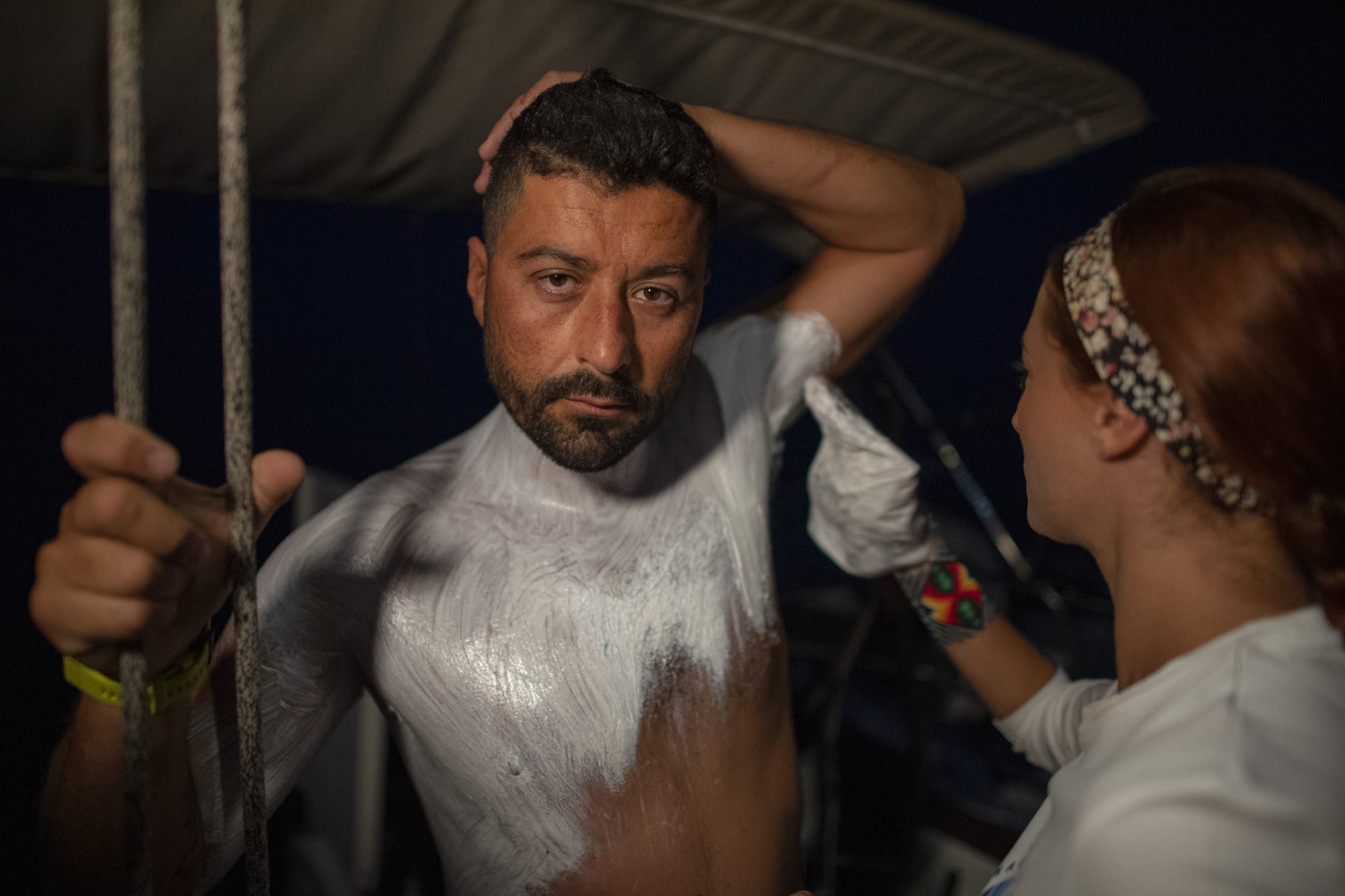
I want to push myself to the absolute limit, and understand what that feels like. It’s an unassisted open water swim, no wetsuit, and should take me around 70 hours. Unassisted means at no point can I stop. At no point can I get on the boat and rest. At no point can I hold onto the side of the boat or use a flotation device. If I was doing an ultramarathon, I could stop, sit on the pavement, get a massage. With this challenge, there’s none of that. I have to be treading water while I’m eating food, which is passed to me in a Tupperware box, attached to a broomstick. And there’s no sleeping at all. It’s wild and crazy, but it’s a calculated risk.
I want to share why I am doing it, and the training I have done, because I think everyone can take something from my experience. You don’t need to swim for 70 hours, or 100 miles, to learn from the process I am going through to improve your everyday life.
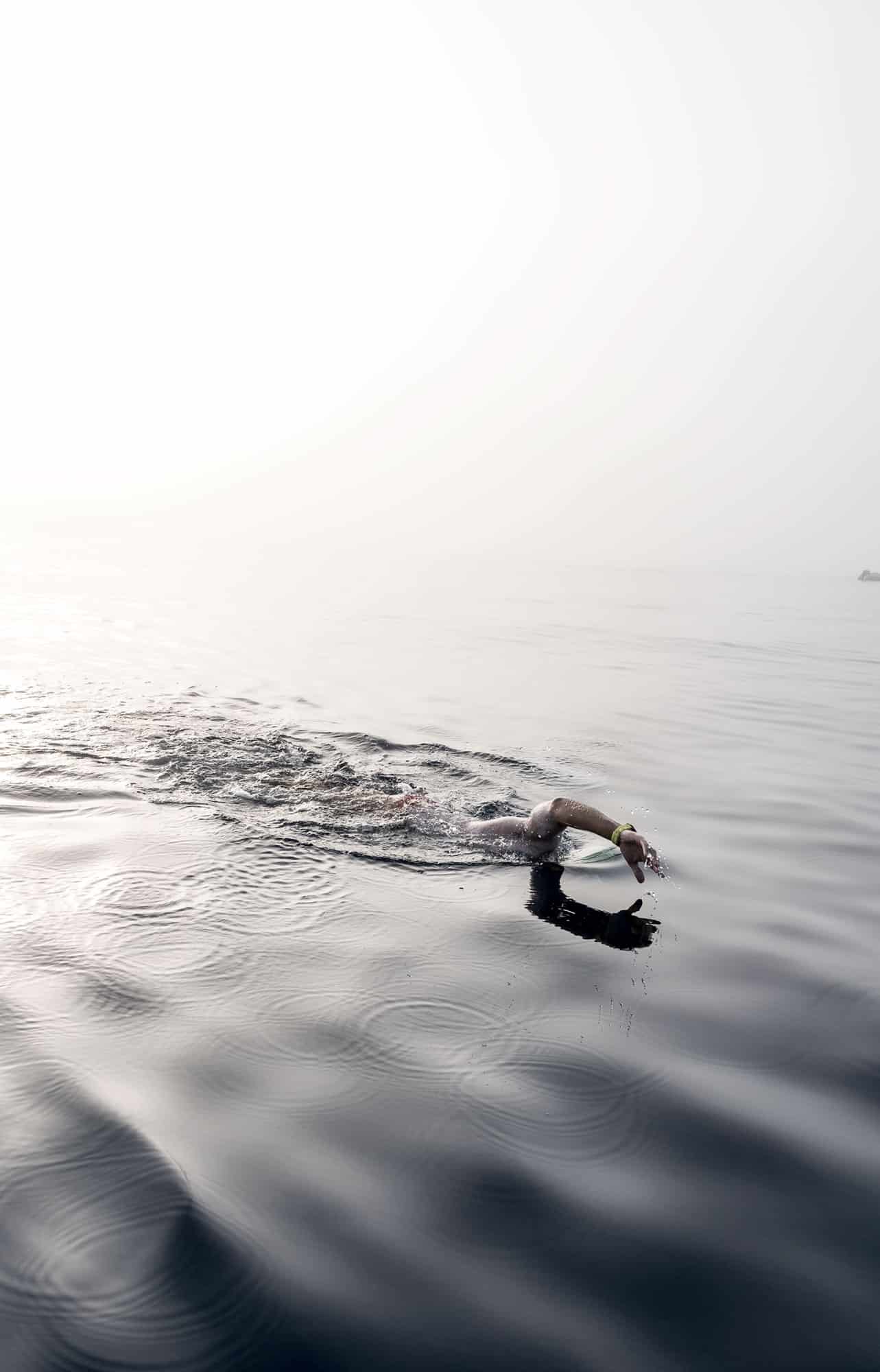
My mindset training involves sitting in meditation and bringing up a lot of fears and difficulties that I’ve faced in my life. I’ve learned to be comfortable with the uncomfortable. When I’m meditating, I listen to traditional South American music, which are basically prayers to the sea, the plants, the sun, and the moon. And I have three mantras I repeat. So when I’m in a difficult situation, they play me those songs so it gets me back into a place of concentration and silence in my head.
The mind is super-powerful. As soon as you get one moment where you feel like you’re not going to accomplish something, your brain throws a wet blanket on top of you. It only takes one quick negative thought for this blanket to be thrown on, and the longer that you take to remove it, the heavier it gets. So to remove this wet blanket, you need to swim towards the light. Think of things that make you feel good, think of all the training you’ve done, think that you are stronger and better than this situation that you’re in. It’s about remaining focused, not letting any thoughts in that shouldn’t be there.
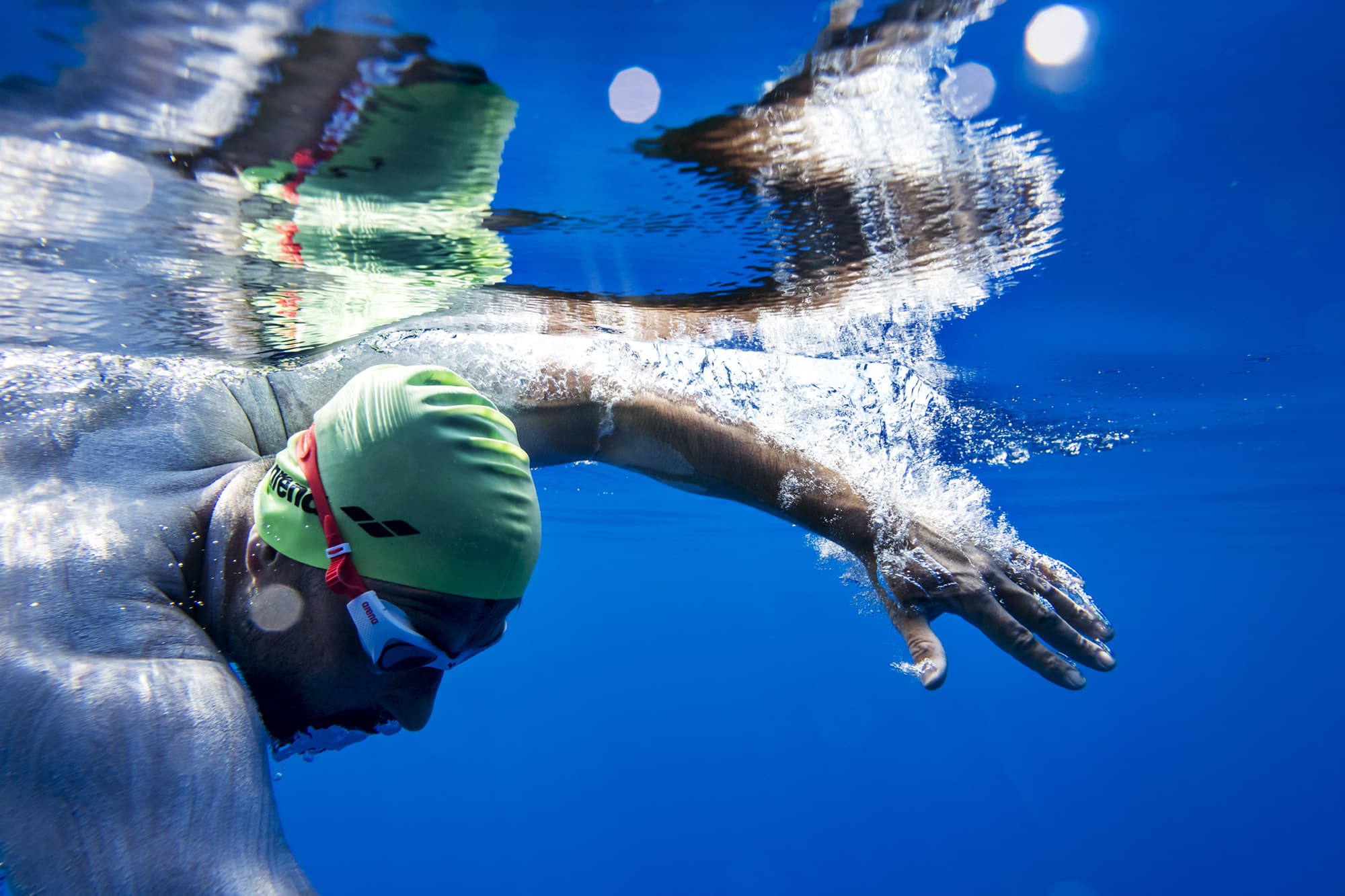
It’s a race against time, seeing how long I can stay awake before I start hallucinating so much that I don’t know where I am or what I’m doing. I’ve seen a full-on village coming to life under the sea. People holding hands, children playing, everyone waving to me as I pass by. The hallucinations come from the lack of sleep, and it’s like a psychedelic trip. I just try and enjoy it, and treat it as part of the experience.
I also split up the challenge. Having just one victory, when I finish the swim after 70 hours, is too far away. So I split the challenge up to enjoy those wins periodically. You get the endorphin release, and the adrenaline rush takes you to the next milestone. Even in your everyday life, if you have a goal that’s your ultimate dream, make sure there are also little milestones that are celebrated. Because once you get that celebration, and once the endorphin release happens, you’re motivated to climb to the next step of the ladder.
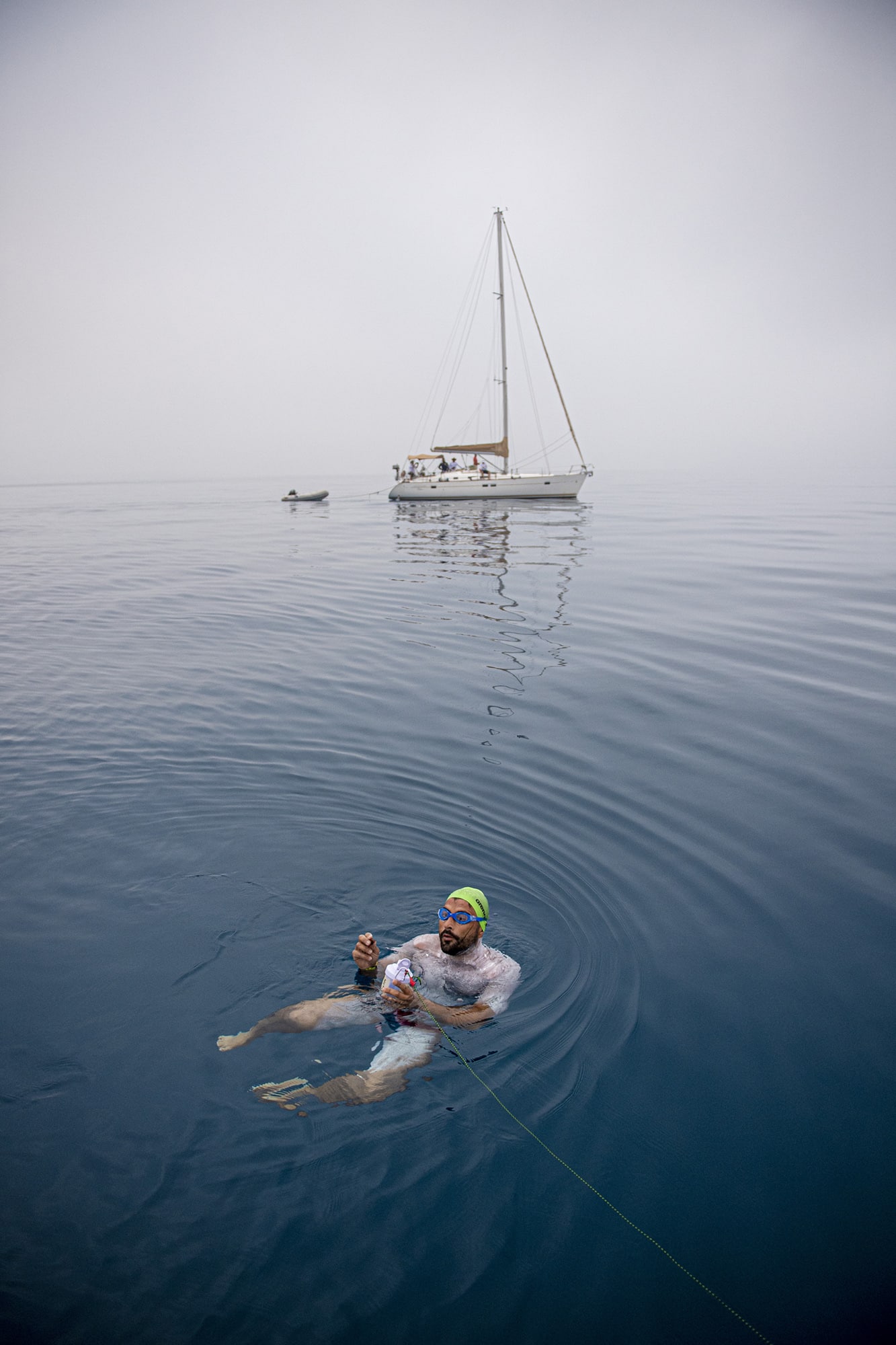
Acceptance of the situation that you are in is a big part of it. I’m swimming through three nights of total darkness, where I can’t see past my hand because it is so black, and there are times I will think a shark might be swimming underneath me. You can either fight these thoughts or just accept it. Once you accept there might be a shark there, and that’s fine, the fear disappears.
It’s also about learning to access the power of the nature around me. So during the day, I can feel the sun hitting the bottom of the seabed, bouncing back up and filling my heart, and I use that energy to drive me forward. I also access the heat from the moon, and tune into that to keep me warm at night. And I access the energy of my team. I swim with a rib next to me, and in front of that is a sailing boat. I have a team of 22 people, and they are on a roster for three of them to sit on the rib at a time. They only do two-hour shifts as they have to be focused. If they’re having a nap or looking at their phones, that will take my energy away.

Another tool that I have found helpful in my everyday life is reframing negatives into positives. I’ve been stung by so many jellyfish that now when a jellyfish comes into contact with my skin, I think of it releasing all its energy into me and making me swim faster. So now in my everyday life, if something is bothering me, I use it as fuel to move forward faster towards my goals.
And I really believe in visualization. During the swim, it’s visualizing the sunrise, or the finish line, and really bringing that to life. But in the real world, if you’re giving a presentation in your job, sit in silence first and really focus on standing up in front of your colleagues, how you want to be presenting the information. That helps you prepare for what might happen and keeps you one step ahead.

Confidence is crucial too. But you cannot be confident without putting the work in. That’s just ego. So to stand on stage and give a presentation to 500 people, and be confident doing it, that comes from hard work. It’s the same with my swim. To stand on the ladder, ahead of a 70-hour swim, and be confident I’m going to finish and not get stuck in my mind, I need to know I have done the right training. And breathwork is important. Our breath is our remote control for our body. Whenever you are in an uncomfortable situation, your breath can control your emotions and stress levels.
The cause is the final factor that keeps me going. Wave of Change came about in 2018, when I was doing a night swim and a plastic bag fully engulfed my face. I felt like it was a message from the ocean for me to be its voice. Our campaign focuses on three pillars — Eat for Change, Dress for Change, and Live for Change. They’re based around three different demographics. Dress for Change is for Gen Z, so lots of thrifting and buying clothes more sustainably, not just for one season. Eat for Change is aimed at my generation, encouraging people to eat more conscientiously. And Live for Change is for our parents’ generation, asking them to make sure they’re switching out the lights, and washing their clothes at 30 degrees, that kind of thing. No-one is perfect, but we can all try.
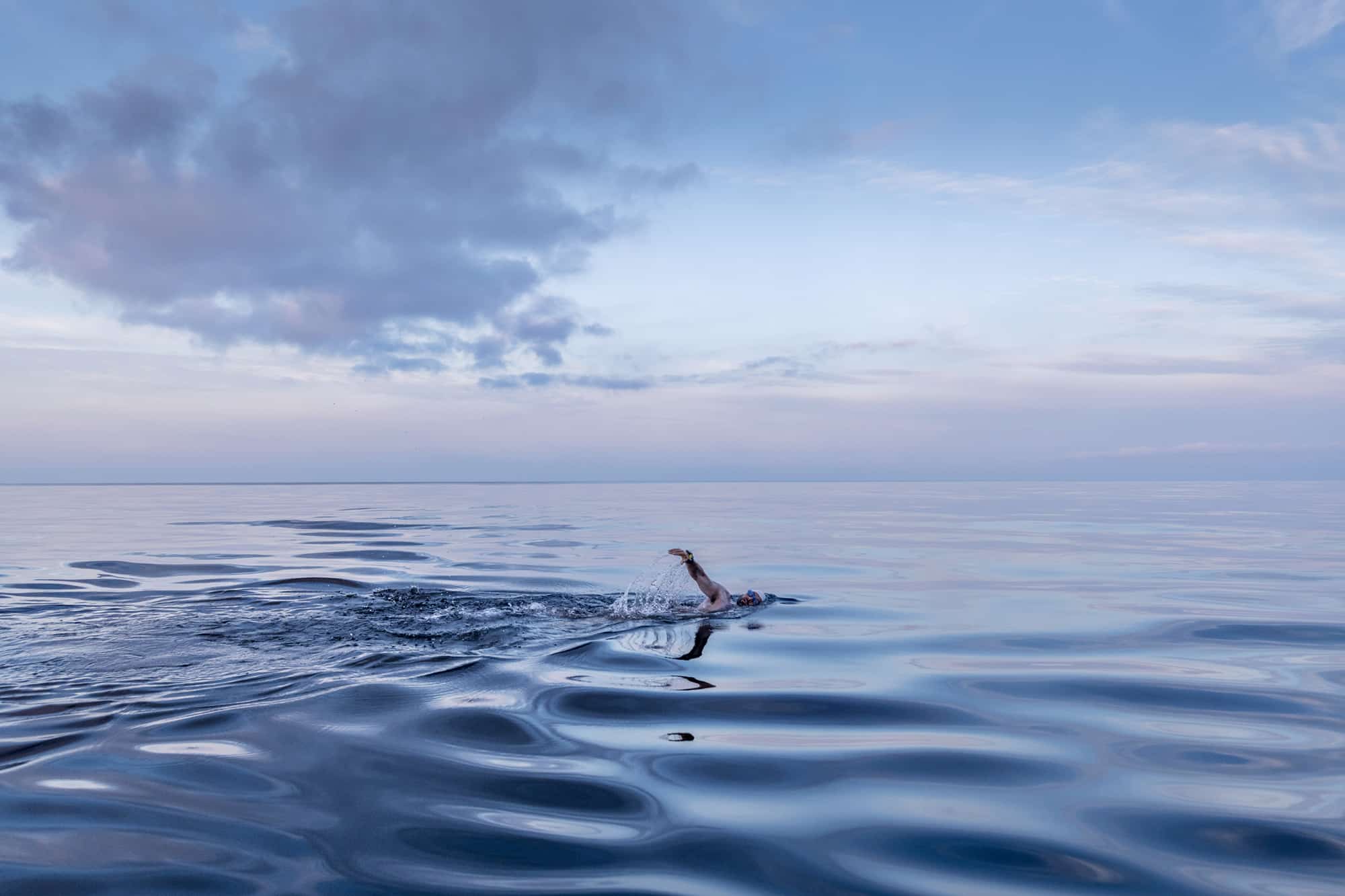
Neil will start his world record 100-mile swim on June 26
Learn more about Wave of Change


